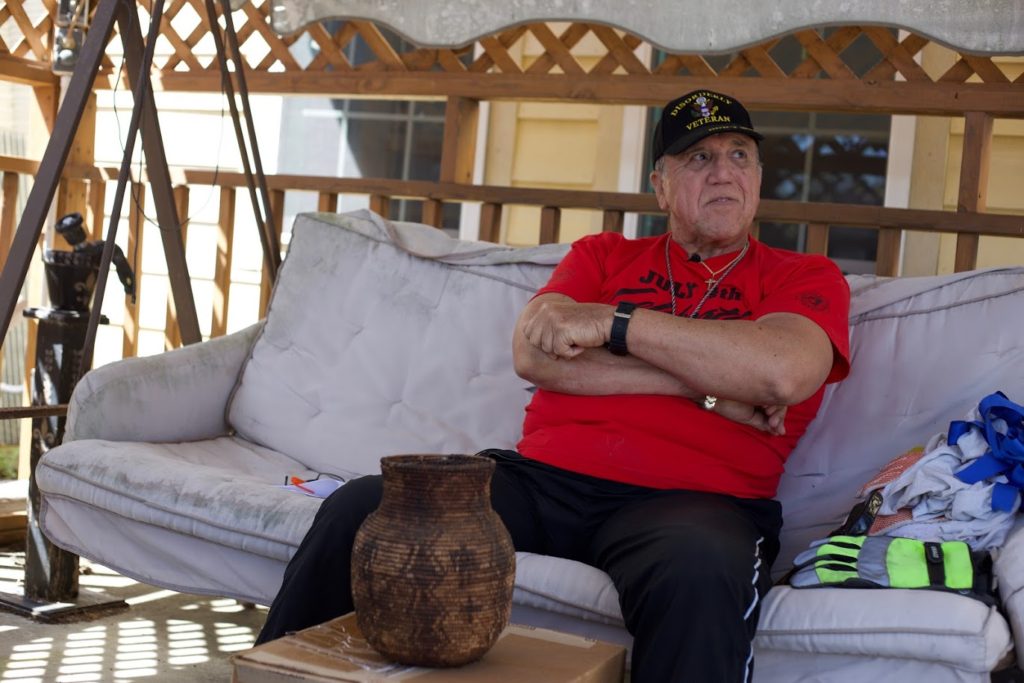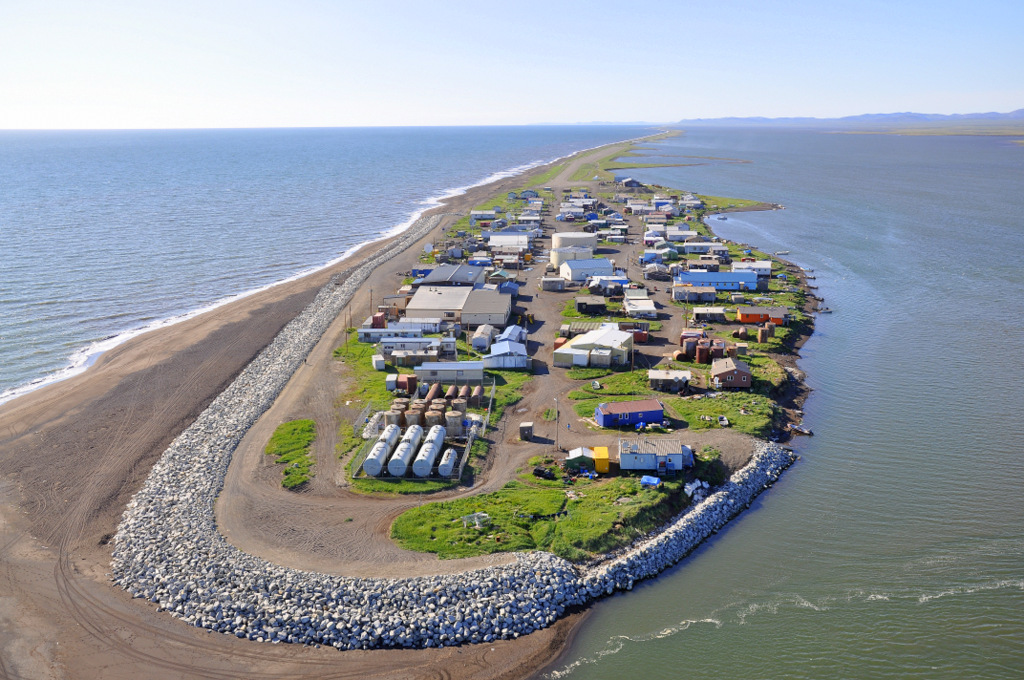While the Isle de Jean Charles Band of Biloxi-Chitimacha-Choctaw Indians move through a contentious relocation effort as their island is slowly swallowed by water, other Louisiana tribes and an Alaskan tribe facing similar predicaments have made their plights known to the United Nations by submitting a formal complaint.
On Jan. 15, The Alaskan Institute for Justice submitted “Rights of Indigenous People in Addressing Climate-Forced Displacement” on behalf of the Native Alaskan Village of Kivalina and multiple Louisiana tribes, including the Pointe-Au-Chien Indian Tribe, the Grand Bayou Village of the Arakapa-Ishak Chawasha Tribe, and the Grand Caillou/Dulac and Isle de Jean Charles Bands of Biloxi-Chitimacha-Choctaw Indians.

Photo: Adam Kelnhofer
“Despite their geographic differences, the Tribes in Louisiana and Alaska are facing similar human rights violations as a consequence of the US government’s failure to protect, promote and fulfill each Tribe’s right to self-determination to protect Tribal members from climate impacts,” states the complaint. “These rights include the rights to life, health, housing, water, sanitation, a healthy environment and food, among others.”
Each tribe faces similar issues albeit under different circumstances and levels of severity. Whether its rising sea levels, catastrophic storms or unchecked extraction of oil and gas, each tribe is being forcibly displaced from their ancestral homes, according to the complaint. In the case of the Louisiana tribes, their lack of federal recognition hinders the tribes’ ability to get the help they need from the federal government.
Scott Hemmerling, director of Human Dimensions at the Water Institute of the Gulf, said that a good example of how Louisiana tribes suffer from non-federal recognition is the case of the Isle de Jean Charles relocation effort in collaboration with the state of Louisiana. The project was originally to ensure the culture and “life-ways” of the community.
“How do you just move a culture?” Hemmerling said.
In 2015, the U.S. Department of Housing and Urban Development gave the state of Louisiana a grant that included $48 million to fund the Isle de Jean Charles Tribal Resettlement plan. But because of the federal nature of the grant, the State of Louisiana asserted that “tribal affiliation” would not be a part of the resettlement plan. Trust was quickly lost between the Isle de Jean Charles tribe and the state when the tribe realized that they had no say in the plan.
“In our opinion, the State of Louisiana has managed to ruin their chance to be leaders of our country and world by ignorance and ‘good ‘ole Louisiana politics,’” wrote Chief Albert Naquin in a letter.
The complaint states that while relocation efforts between Louisiana tribes and the state government betray the tribes’ right to self-determination, the fact that little to nothing is done to prevent their land from disappearing highlights a grim truth.
“It’s a way for communities to see that the state can’t protect them,” said Hemmerling.
Similar Problems on the Other Side of the Continent
Although the Alaskan Native Village of Kivalina is federally recognized unlike the other tribes represented in the complaint, the approximately 400 Inupiaq people living in the village know that their home will inevitably be gone.

The village is located on a barrier reef island on the northeastern coast of Alaska. According to the UN complaint, no roads lead to or from the community, which is only accessible by small planes or boats and is approximately 100 miles north of the Arctic Circle and 1,000 miles northwest of Anchorage, Alaska.
According to a 2003 National Oceanographic and Atmospheric Administration study, Kivalina Island shrunk from 55 acres in 1953 to 27 acres of livable space. The UN complaint states that coastal erosion from severe storms and rising sea levels from the ever-shrinking Arctic Circle threaten the existence of the island and that by 2025, it will be inhabitable.
Subsistence hunting and gathering is the main source of food in Kivalina, according to the UN complaint. But the changing environment is now too unstable to reliably provide sources of food.
“We have not caught the bearded seal for 2 years, due to lack of solid ice formation,” said Kivalina’s Tribal Administrator Millie Hawley in a statement. “All the marine mammals we gather to feed our families for the winter are lacking and our childbearing women suffer the most due to low iron in their blood.”
Now Kivalina relies on western food delivered by plane, making the cost of living exponentially higher for families. At the same time, marine animals like salmon have been washing up dead along the Alaskan coast from rising sea temperatures, according to the UN complaint.
Like the Isle de Jean Charles tribe, the Native Village of Kivalina’s attempts and resettlement have run into problems with government bureaucracy and inaction. The complaint states that as early as 1998, relocation sites chosen by Kivalina residents were rejected by the U.S. Corps of Engineers after deciding that it would not be cost-effective to shore up the sites against flooding from permafrost melt.
A protective rock barrier and funding for an evacuation road are the only solutions that Kivalina has received from their state and federal government, but these are less than ideal, short-term solutions that leave the community with a sense of abandonment and hopelessness, according to the complaint.
“A lack of dedicated federal and state funding has meant that the relocation process moves too slowly for Kivalina’s residents whose lives are in danger every time a storm inundates the community,” states the complaint.